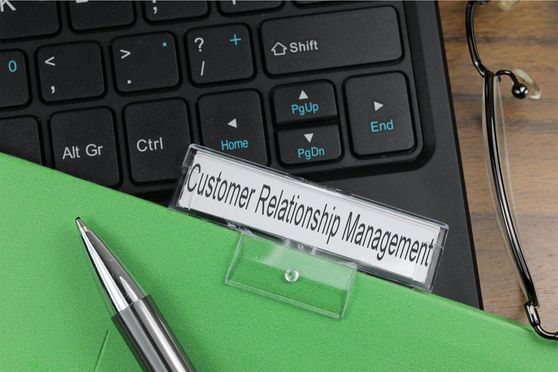Career In Customer Relationship Management: What does a customer relation manager do?


In today's digital world, customers have more control over their decisions when weighed against a decade or so ago. It only takes a few seconds for a customer to praise or criticise your brand on social media. However, there is also another, more intrinsic element governed by customer satisfaction and that is brand loyalty.
For any company to profit, they must have customers with buying power and studies have shown that on an average, acquiring a new customer costs 5 times as much as retaining an existing one. Brand loyalty is the key to customer retention.
Customer Relations is the procedure companies use to connect with their customers and build long-term relationships with them. Customer relationships involve many activities, from answering customers' day-to-day questions to developing long-term policies that lead to customer success. Done properly, it can lead to an increment in customer retention and a connection with customers on a more personal level.
So what are some of the things that as a customer relationship manager, you should look forward to doing?
Duties of a customer relationship manager
A customer relationship manager’s primary job is to develop and foster trust with the company's key customers. They must figure out the customers' needs and find constructive solutions. With big companies having a lot of customers, these managers utilise customer relationship management(CRM) software to keep a track of every customer that they have contacted, along with all communication. Another important role played by a Customer Relations Manager is to serve as the face of the company and keep the customers updated about new ventures, services and products that the company is offering.
2. Solving customer issues
Customer Relationship Managers look into customers' queries, emails, social media comments, and reviews to identify any problems that the customer might be facing with the company's products or services and provide tailored solutions to them. In the age of social media, customers generally look forward to quick and helpful replies. These practices, when carried out properly by a customer relationship manager, go a long way in projecting the company in a positive light.
3. Expansion of customer base
A customer relationship manager not only retains existing customers, but also acquires new ones. Growing a company’s customer base is the only way you keep building it up from strength to strength. Customer relationship managers will ideate and come up with marketing strategies for this purpose and also implement them. Some strategies that you could be employing are launching a new advertising campaign or using sales techniques such as giving hefty discounts.
For the first-time customer relationship executive, CRMs can be quite a task - what they are and why exactly they are used. Read on for an explainer.
What is CRM (customer relationship management) software?
Customer relationship managers cannot possibly keep track of every customer and interaction, especially now in time of digital media and big data. The boon in these situations is CRM software.
Customer Relationship Management (CRM) is a software that manages all contacts and interactions between a company and its customers and prospects. Its goal is to enhance business relationships and improve profitability.
Why is CRM necessary?
Businesses these days, big or small, end up with a lot of data. With the data surrounding manufacturing or other inhouse processes, businesses will have other ways to manage it or organise it. When it comes to customer relations, though, there is again a lot of data, which needs to be made available for customer relationship executives and managers. This is what makes the CRM software necessary - it provides an organised structure to all the data collected by and created by an organisation with respect to its customers.

What are the advantages of using a CRM?
Now, if you think that marketing strategies and building strong customer relationships are just your thing - here is how you can learn the basics and get started with a career in customer relationship management.
Career in customer relationship management: courses, career scope, colleges
An online course can be a good place to gain the specialised knowledge and dos and don'ts you need to crack an interview in customer relationship management. People in these roles come from a variety of different educational backgrounds, and certifications and short courses show them the way. Check out these online courses for customer relationship management:
If, however, you would like to pursue a full time course, the top 3 colleges in India to study full time courses in Customer Relationship are:
Career scope: For organisations to foster and maintain strong relationships with their customers, it is exceptionally critical for them to have customer relationship managers in place who can effectively build crucial company-customer relationships. Hence, unique handling of these situations is a high paying career choice in today’s time.
Building collaborative relationships with customers is critical for the long-term success of an organisation. A strong connection on the basis of clear communication helps customers feel more connected to a particular brand, leading to increased customer loyalty and repeat purchases. And frankly, most customers prefer human interaction over IVRs, FAQs and chatBots. Be the human connection that companies need!